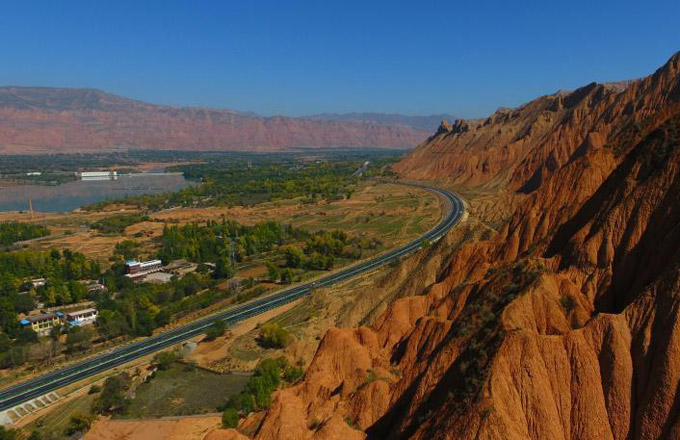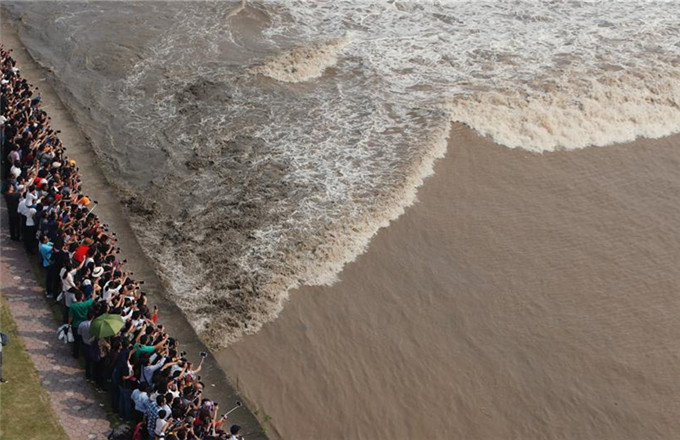Liu Bocheng, CPC member who took part in Revolution of 1911
Liu Bocheng (December 4, 1892 - October 7, 1986) was a Chinese Communist military commander and Marshal of the People's Liberation Army born in Sichuan in 1982.
Liu was a revolutionary, military strategist and theoretician, and one of the founders of the People's Liberation Army. Liu's nicknames include Chinese Mars and The One-eyed Dragon.
Liu was born to a peasant family in Kaixian, Sichuan. Although he grew up in poverty, Liu made a determined effort in his studies and gained good grades at school. Influenced by the revolutionary theories of Sun Yat-sen, he later decided to dedicate himself to the cause of establishing a democratic and modern China.
In 1911, Liu joined the Boy Scouts in support of the Revolution of 1911. In the following year, he enrolled in the Chongqing Military Academy and later joined the army against Yuan Shikai, who was planning to undermine the Revolution of 1911 and proclaim himself Emperor. In 1914, Liu joined Sun Yat-sen's party and gained extensive military experience, starting out as a company commander, then as chief of staff of a brigade, later attaining the rank of colonel. In 1916, he lost his right eye in a battle for Fengdu county, Sichuan.
"One-eyed" Liu directed the 129th Division with Deng Xiaoping. The division was considered the best in the People's Liberation Army, and they led them against the Japanese. When the 129th expanded into the Second Field Army, Liu led it against Chiang Kai-Shek. At the beginning of the Long March, he was Chief of Staff of the Central Committee. He often and openly disputed the advice and direction taken by Otto Braun, a German sent by Moscow to direct the Red Army.
During the Long March, Liu Bocheng strongly supported Mao Zedong at the Zunyi Conference. He was described as a genial bespectacled, battle-scarred Red Army officer, but also as a one-eyed dragon. Liu spent nine days and nights on a 10 foot high boulder directing the Golden Sands crossing of the Yangtze River. At the end of the crossing, he set up machine guns to protect the rear guard from the rapidly advancing KMT forces. Liu drank a "chicken-blood oath" with the leader of the Yi minority, Xiao Yedan, in order to become a blood brother and to secure a safe passage through the Yi territory for the Red Army. Zhang Guotao and his Fourth Front Army held Liu prisoner for a year. He strongly defended Zhu De who was also being held prisoner. He once said to Zhang, "What do you mean treating Zhu De like this?" During this time, he was wounded at the crossing of the river Wei. He later managed to escape.
In 1938, Zhang slipped away to join Chiang and the KMT. Lui and Deng Xiaoping commanded the 2nd Field Army in the civil war and made the first attempt to attack "Da Bie Mountains," which is just north of Nanjing. It took them a year to become strong enough to join Chen Yi's 3rd Army. Liu's Second Front Army and Chen Yi's Third Front Army cleaned up the KMT forces south of the Yangtze which cost Chiang Kai-Shek a million men and sealed his fate. On May 27th, Shanghai fell to Liu and Chen's forces. By December Chiang abandoned the mainland and fled to his refuge in Taiwan.
At the founding ceremony of the People's Republic of China on October 1st, 1949, Liu was on the reviewing stand with Chairman Mao.






















